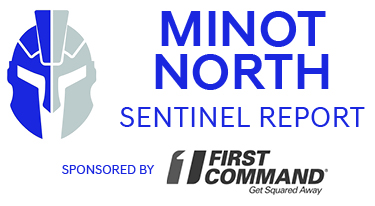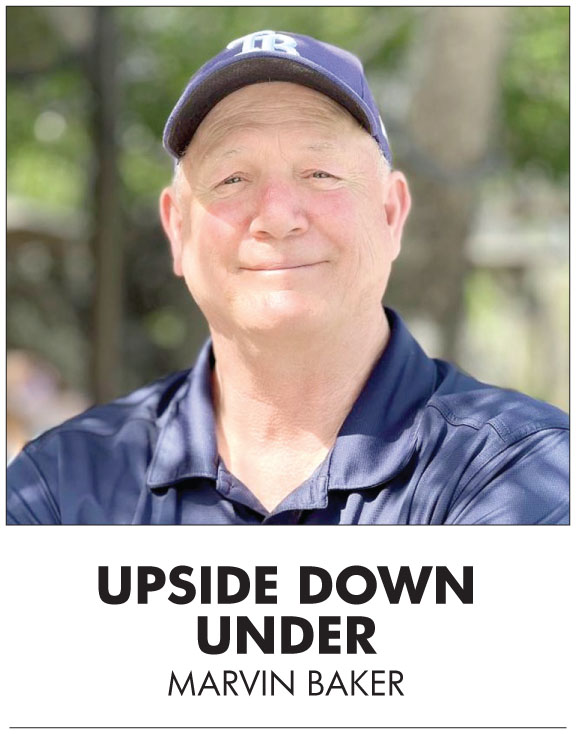Last November, I came down with a nasty intestinal infection. The symptoms were as unglamorous as you could imagine. Understandably, after recovering, I was anxious to put the whole experience behind me, never to relive it again.

Amy Allender photo
I hadn’t thought about those terrible, dehydrated days in months. Then, last week, I walked into urgent care with an ear infection. Several days later, the antibiotic triggered a relapse of the intestinal infection I had hoped never to see again. It turns out some people are “lucky” enough to be susceptible to it repeatedly after an initial incident. Turns out, I’m one of the “lucky” ones.
The first day after confirming the cause of illness was a blur of pain, dizziness, and dehydration. My husband had recently left for National Guard duty, so the entirety of household and childcare rested on my shoulders. It’s a weight all military spouses are familiar with. It’s heavy enough on healthy days, but when you’re sick, the burden is downright impossible to carry.
After picking up my oldest from school, we came home, and all I could do was sit on the floor, holding back tears. Friends had already stepped in to help by watching the kids while I went to the doctor and picked up prescriptions. As I thought about the hours until bedtime and all the tasks ahead, tears began to fall—an ugly cry, the kind that happens when you’re overwhelmed and forced to admit you need to ask for help.
Here’s the lesson I needed to be reminded of; a lesson I’m still learning and maybe you are too: Needing help is not a sign of failure—it’s an opportunity to allow the community machine to work as intended. Helping a friend is not a burden—it’s a chance to use our capable hands to bless those we care about.
One of the best byproducts of being a military spouse is discovering your own capability and resourcefulness. There are endless opportunities to tap into your inner strength and “make it work” when living states away from relatives, and sometimes across the globe from your spouse.
Of course, the downside to this is that we military spouses tend to hesitate to ask for help. Or we allow ourselves to burn out because we don’t want to burden friends, or admit that it’s too much to handle on our own.
I’m talking to myself here, but maybe a few of you can relate.
So there I was, crying on the living room floor when a friend walked in. “Amy, stop trying to do things. Lay down and be still,” she said. Her tone wasn’t bossy, just matter-of-fact. She took over for the rest of the night—getting me drinks, bringing things to my kids, and meticulously preparing PB&Js according to their precise specifications.
After 15 years as a military spouse, it’s still hard to ask for or accept help—even when things are, frankly, dire. But my friend was right. I needed to stop trying to do things. I needed to let relationships do what they’re meant to do: lift the burden in love—not because I’d repay the kindness, but because caring for each other is a gift within the human experience.
So, what does this mean for you? It’s a call for all of us to be intentional about forming relationships and community wherever life leads us. Hardship will inevitably find us. Our best insurance against being swallowed whole by it is to invest in genuine relationships where it’s safe to be vulnerable, and asking for help is not a burden but an opportunity to be a blessing.
Next, let’s remember to check on each other. Remind your friends you’re willing to help—even when things are messy. It’s easier to ask for help when someone makes it clear that those requests are welcome.
Finally, understand that learning to lean on your people takes practice. Asking for help may continue to feel awkward, but like any skill, it gets easier with time. Leaning on your community in a healthy way will hold you up before things implode. It prevents burnout, mental distress, and ultimately allows life to carry on smoothly amidst turbulence. In fact, to lean may be the most important skill we can ever learn. From the right perspective, leaning isn’t a sign of weakness, but rather proof that your friendships are working.
For more stories from Hotdish Land, and positive perspectives, join me online at amyallender.com, Instagram @amy_allender and @HeyMinot, and Facebook @amyallenderblog.













